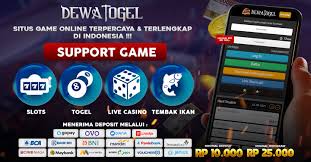In today’s rapidly evolving digital landscape, traditional marketing strategies are being transformed by new technologies and consumer Gestión de redes sociales en las palmas. One of the most significant shifts is the emergence of digital connection marketing, a strategy focused on fostering meaningful relationships with customers through various digital channels. This article explores the principles, benefits, and tactics of digital connection marketing and its impact on businesses.
What is Digital Connection Marketing?
Digital connection marketing is an approach that prioritizes building and nurturing relationships with customers through personalized interactions, engagement, and value-driven content. Unlike traditional marketing methods that often prioritize sales and promotion, this strategy focuses on creating authentic connections with consumers. It leverages digital platforms—such as social media, email, websites, and mobile applications—to facilitate communication and engage with audiences effectively.
The Importance of Connection in Marketing
As consumers become more discerning and empowered, they seek brands that resonate with their values and provide authentic experiences. Digital connection marketing allows businesses to meet these expectations by:
- Fostering Loyalty: Building strong relationships with customers encourages brand loyalty. When consumers feel valued and connected to a brand, they are more likely to return for repeat purchases.
- Enhancing Customer Experience: By engaging with customers and understanding their needs, businesses can create tailored experiences that meet individual preferences, leading to increased satisfaction.
- Encouraging Word-of-Mouth: Satisfied customers are more likely to share their positive experiences with others, leading to organic growth through referrals and recommendations.
- Gaining Insights: Digital interactions provide valuable data about customer behaviors, preferences, and pain points, enabling businesses to refine their strategies and offerings.
Key Strategies for Digital Connection Marketing
To effectively implement digital connection marketing, businesses can adopt several key strategies:
1. Personalized Communication
Utilizing data analytics and customer insights, brands can tailor their messaging to address individual needs and preferences. Personalization can be achieved through targeted emails, customized content recommendations, and personalized social media interactions.
2. Engaging Content
Creating valuable, relevant content that resonates with the audience is essential for fostering connections. This can include blog posts, videos, podcasts, and infographics that educate, entertain, or inspire customers. Brands should focus on storytelling, as compelling narratives can evoke emotions and strengthen connections.
3. Social Media Engagement
Social media platforms are powerful tools for building connections. Brands should actively engage with their audience through comments, messages, and shares, creating a two-way communication channel. User-generated content, contests, and interactive posts can further enhance engagement.
4. Community Building
Creating online communities—such as forums, groups, or loyalty programs—allows customers to connect with one another and the brand. This sense of belonging fosters loyalty and encourages discussions around shared interests and experiences.
5. Feedback and Listening
Brands should actively seek feedback from their customers and demonstrate that they value their opinions. Surveys, polls, and direct conversations can provide insights into customer preferences and areas for improvement, helping to strengthen relationships.
Measuring Success in Digital Connection Marketing
Measuring the effectiveness of digital connection marketing requires a focus on qualitative and quantitative metrics. Key performance indicators (KPIs) may include:
- Customer Engagement Rates: Analyzing likes, shares, comments, and interactions on social media and other platforms.
- Customer Retention Rates: Tracking repeat purchases and loyalty program participation.
- Net Promoter Score (NPS): Gauging customer satisfaction and likelihood to recommend the brand to others.
- Content Performance: Evaluating how well different types of content resonate with the audience based on views, shares, and conversion rates.
Conclusion
Digital connection marketing represents a shift towards relationship-driven strategies that prioritize customer engagement and loyalty. By leveraging technology and data, businesses can create personalized experiences that resonate with their audience, foster meaningful connections, and drive long-term success. As the digital landscape continues to evolve, brands that embrace this approach will be well-positioned to thrive in an increasingly competitive market.


